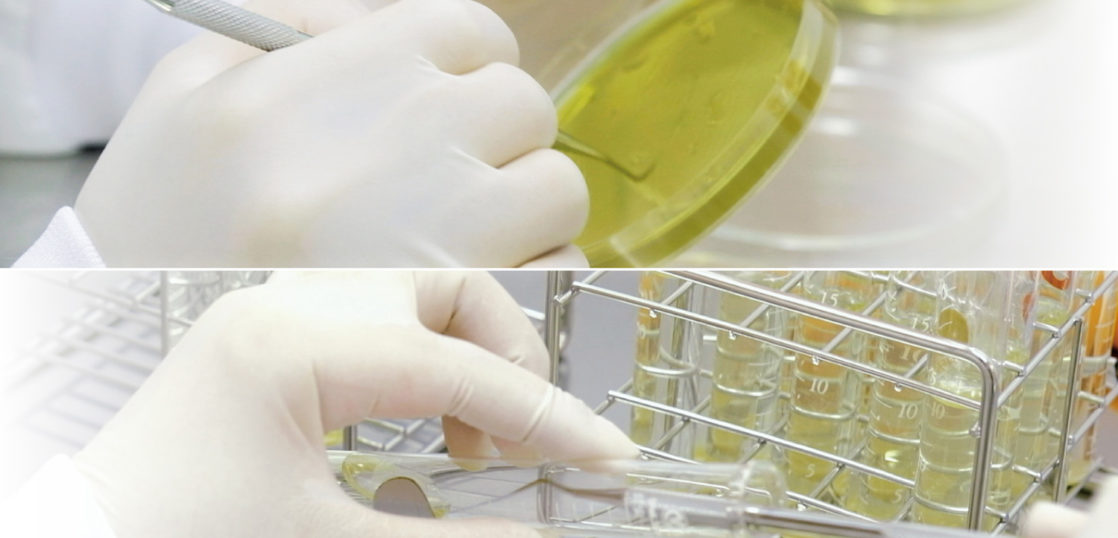目次
- 1 About Cordy
- 2 Important Aspects in Advancing Cordy Research
- 2.1 Safety Tests Conducted at GLP-Compliant Facilities
- 2.2 Regular DNA Testing
- 2.3 Monolith is GMP Certified
- 2.4 Conducting Safety Tests at GLP-Compliant Institutions (Cordyceps Cordy)
- 2.5 Regularly Conducting DNA and Radiation Tests (Cordyceps Cordy)
- 2.6 Passed Doping Tests by Racing Chemistry Laboratory (Cordyceps Coldi)
About Cordy
Cordy is a fungus derived from Japanese Cordyceps
Are you familiar with Cordyceps? Cordyceps is a type of fungus that parasitizes insects and has been prized in China since ancient times as a tonic for stamina and longevity. Over 500 species of this fungus have been discovered worldwide, with about 400 species found in Japan.
Among these 400 Japanese species of Cordyceps, several strains beneficial for human and pet immune regulation have been carefully selected and cultured using Monolith’s proprietary know-how to create Cordy.
Cordy Enhances the Immune System of Dogs, Cats, and Other Pets
By regulating your pet’s immune system with Cordy (raising low immunity and suppressing excessive immunity), improvement in various conditions can be expected.
For example, it has potential for improving challenging diseases such as melanoma, lymphoma, mammary gland tumors, FIP (Feline Infectious Peritonitis), and FeLV (Feline Leukemia Virus). It is also being researched, in collaboration with over 300 animal hospitals nationwide (as of January 2020), for applications in immunotherapy for generally weak or frequently ill pets and anti-aging.
The following symptoms may suggest that our research information could be useful:
- Concern about health due to advanced age
- Weak constitution and a desire to boost immunity
- Receiving or about to start cancer treatment
- Advised by a vet that further treatment may be difficult
- Received a terminal diagnosis
Get information to support your pet’s health>>
At Cordy Research Lab, we are conducting studies to explore the potential of adding Cordy to cancer treatments at animal hospitals to improve prognoses. If you are an animal hospital considering its use in clinical practice, please contact us.
Important Aspects in Advancing Cordy Research
To administer Cordy to animals, we conduct safety tests and regular DNA identification tests.
Safety Tests Conducted at GLP-Compliant Facilities
Cordy has undergone acute toxicity tests, subacute toxicity tests, Ames tests (mutagenicity tests to check for genetic abnormalities), and genotoxicity tests among others, at GLP-compliant facilities*, confirming its safety.
Implementing these safety tests incurs considerable costs. Particularly, conducting safety tests at a GLP-compliant institution is very expensive. However, as these tests are deemed the minimum necessary when used on animals, our laboratory confirms the safety of Cordy at a GLP-compliant institution.
*GLP-compliant institution: An institution conforming to the GLP (Good Laboratory Practice) guidelines established by the OECD (an international organization) to ensure that tests and trials evaluating the safety of pharmaceuticals, chemicals, etc., are conducted accurately and appropriately.
Regular DNA Testing
Among the Cordyceps discovered in Japan, Cordy has been identified as a particular strain that has verified health benefits.
We cultivate Cordy using both liquid and solid media, increasing the number of fungi for practical research applications.
The most critical aspect during cultivation is preventing contamination from other fungi. It is very dangerous to identify Cordyceps fungi solely based on appearance, even if one believes they are cultivating a specific strain of Cordyceps. Furthermore, even if the extraction and cultivation of pure fungi are successful, there is always the risk of contamination by other fungi during repeated subcultures, which needs constant consideration.
In our laboratory, we inoculate fungi into the culture medium within a clean draft and then cultivate specific Cordyceps within a cleanroom maintained with HEPA filters, minimizing the risk of contamination by other fungi.
Additionally, it is not uncommon for fungal genes to mutate and alter the nature of the fungi due to various reasons. This phenomenon can occur with any type of cultivated fungi, not just Cordyceps.
If the nature of the fungi changes or if other fungi get mixed in, it would no longer be Cordy cultivated from a specific strain of Cordyceps. Thus, regular DNA testing is necessary to confirm that only the targeted species of Cordyceps fungi are being cultivated.
In our laboratory, we conduct regular DNA identification tests to ensure that the cultivated Cordy maintains its identity with the original fungi (Cordyceps).

この記事が気に入ったら
いいね ! しよう
サイト内検索


